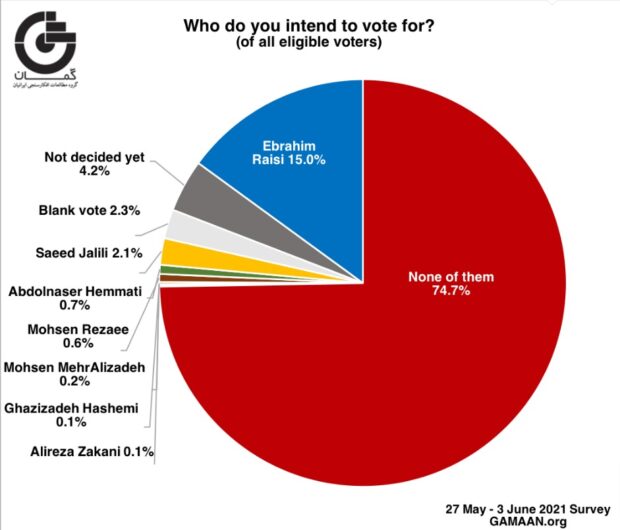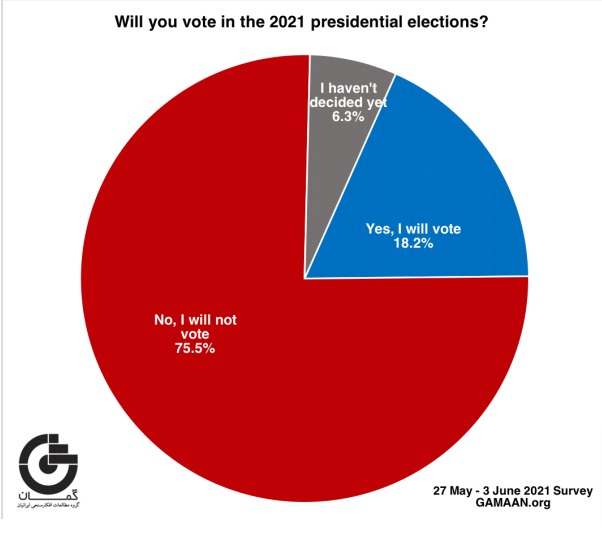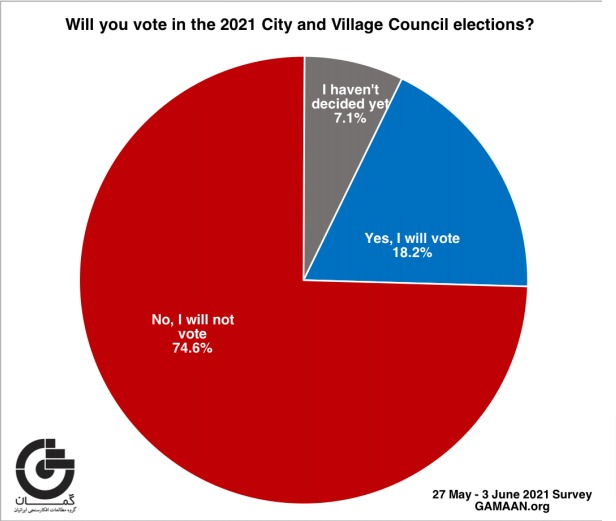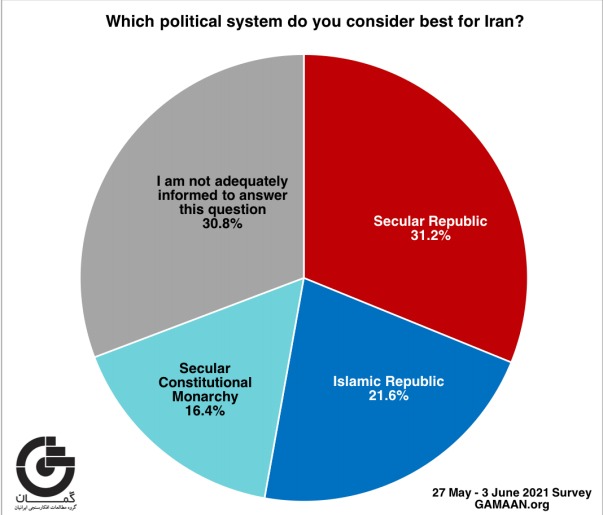
Find here the full English report and methodology of GAMAAN’s survey on Iranians’ Attitudes Toward Elections – 2021
Survey summary
-The survey titled “Election Survey” was conducted from May 27 to June 3, 2021. Around 80 thousand respondents participated in the study. The final sample used in this report consisted of 68,271 Iranians living inside Iran. This study’s findings reflect the views of literate Iranian residents aged above 19, who comprise 85% of the eligible voters in Iran. The results can be generalized to the target population with a 95% credibility.
-The results show that around 75% of the population will not vote in the upcoming presidential election, which is held on June 18, 2021, while 18% say they will certainly vote, and 6% haven’t decided on their participation. Moreover, the willingness to vote in the City and Village Council elections resembles that of the presidential election.
-While around 71% of the non-voters reported “the unfree and ineffective nature of elections in the Islamic Republic” as their reason for abstention, 7% reported the Guardian Council’s “disqualification of my preferred candidate” as their reason. About 2% declared that they will not vote due to the COVID-19 pandemic and “the health risk of standing in the voting queue”.
-15% of all eligible voters will vote for Ebrahim Raisi, 2% for Saeed Jalili, and less than 1% for any of the other candidates. Roughly 4% of the population haven’t decided, while about 2% declared to cast a blank vote.
-Of those who intend to vote, 59% reported to vote for Ebrahim Raisi, 8% for Saeed Jalili, 3% for Abdolnaser Hemmati, 2.5% for Mohsen Rezaee, and less than 1% for Mehralizadeh, Ghazizadeh Hashemi, and Zakani. About 16% of those who intend to vote haven’t decided on their preferred candidate, while 9% say they will cast a blank vote.
-In response to a question about an imagined, completely free election, the most popular candidates were Reza Pahlavi (29%), Ebrahim Raisi (15%), Nasrin Sotoudeh (11.5%), Mahmoud Ahmadinejad (10%), Narges Mohammadi (8%), Mohammad Nourizad and Masih Alinejad (both 7%), and Mohammad Khatami, Esmail Bakhshi, and Mir-Hossein Mousavi with around 4% of the votes. Among the proposed political figures in the survey, Hassan Rouhani was the least popular.
-When asked about the most suitable type of government for Iran, 31% opted for a secular republic, 16% a secular constitutional monarchy, and 22% preferred an Islamic Republic as the best political system for Iran. About 31% reported to be inadequately informed for answering this question.
-Among the Iranian respondents who live outside Iran (over 6 thousand people), about 54% voted in the 2017 presidential election, but only 4% declared to vote in the upcoming election.








